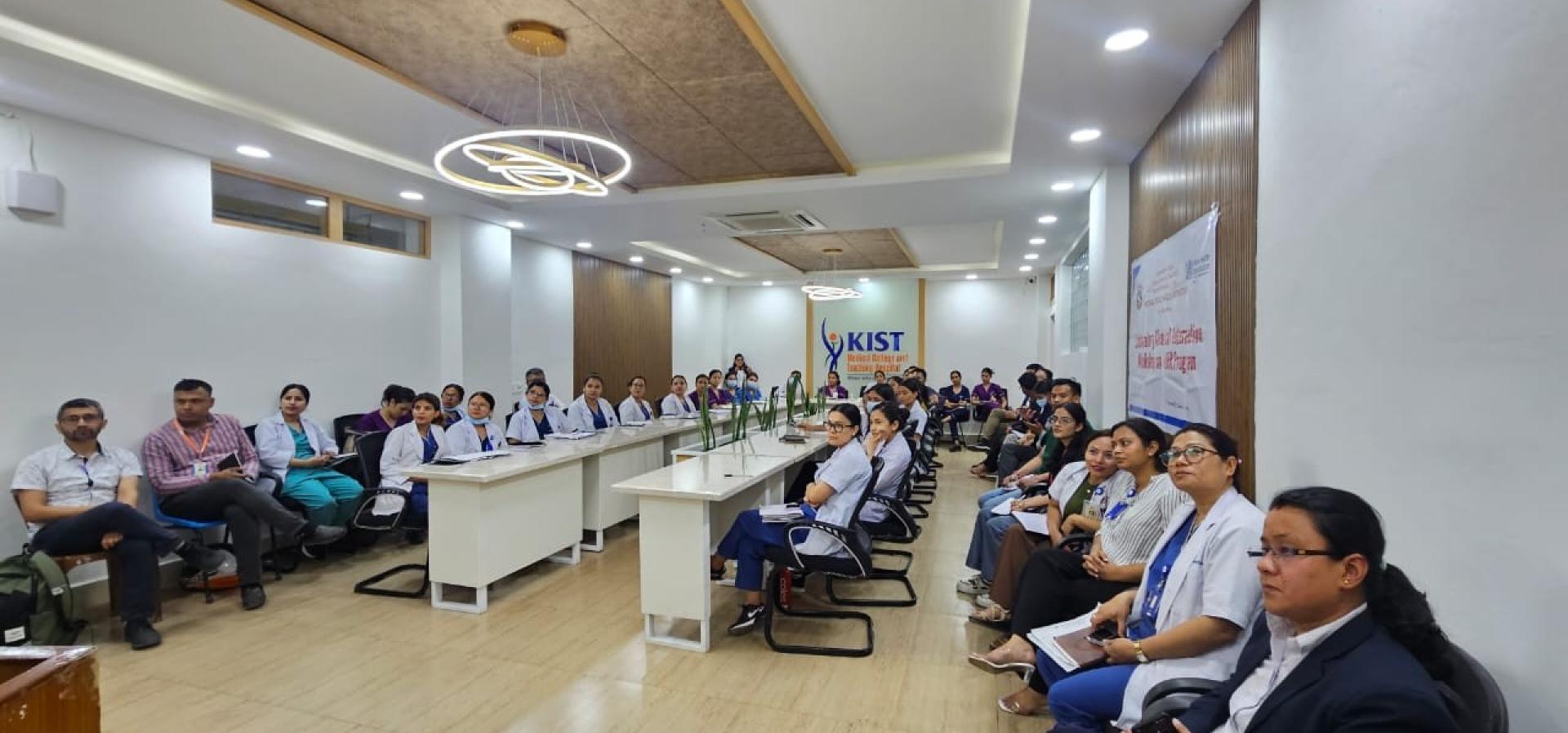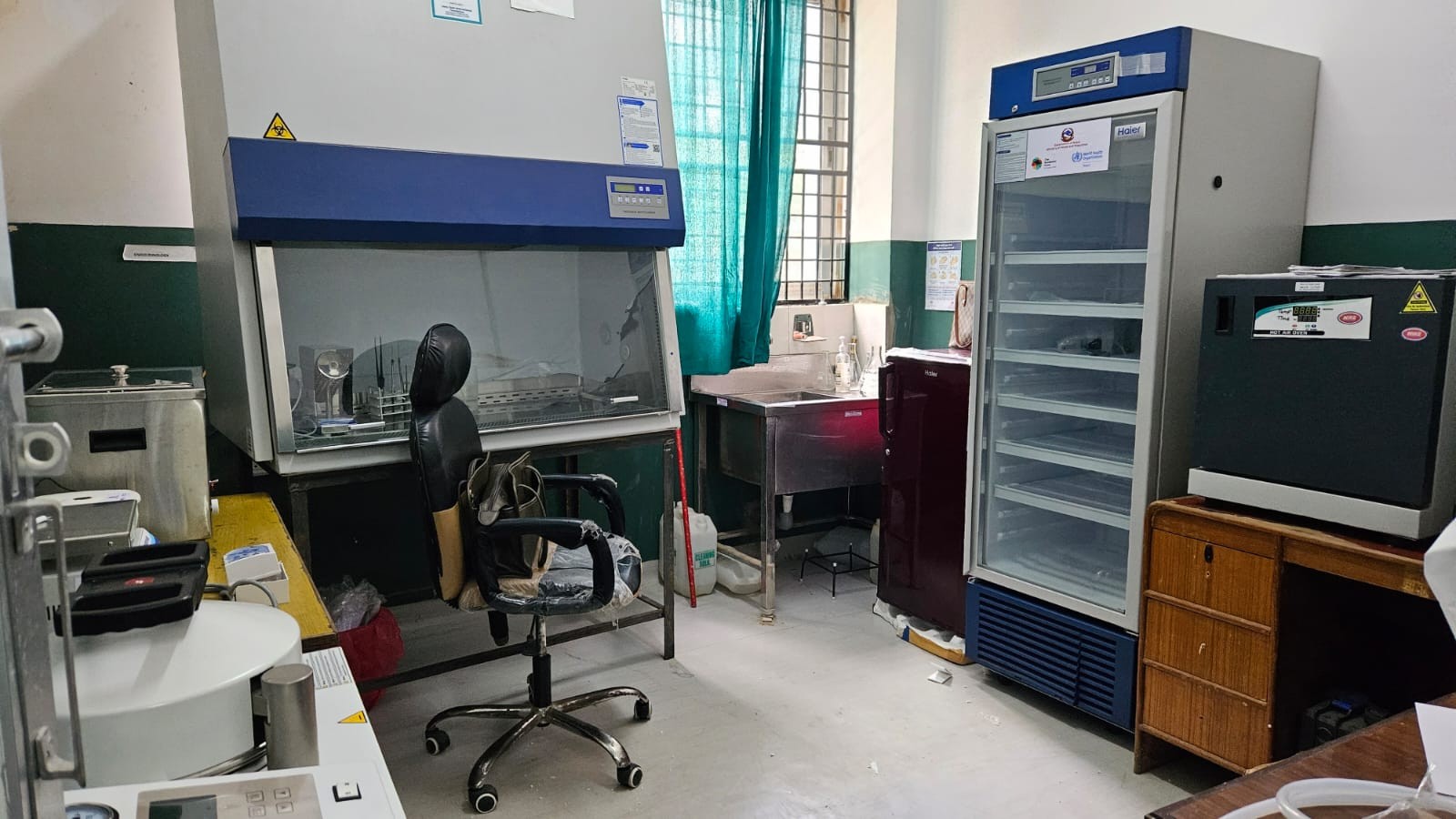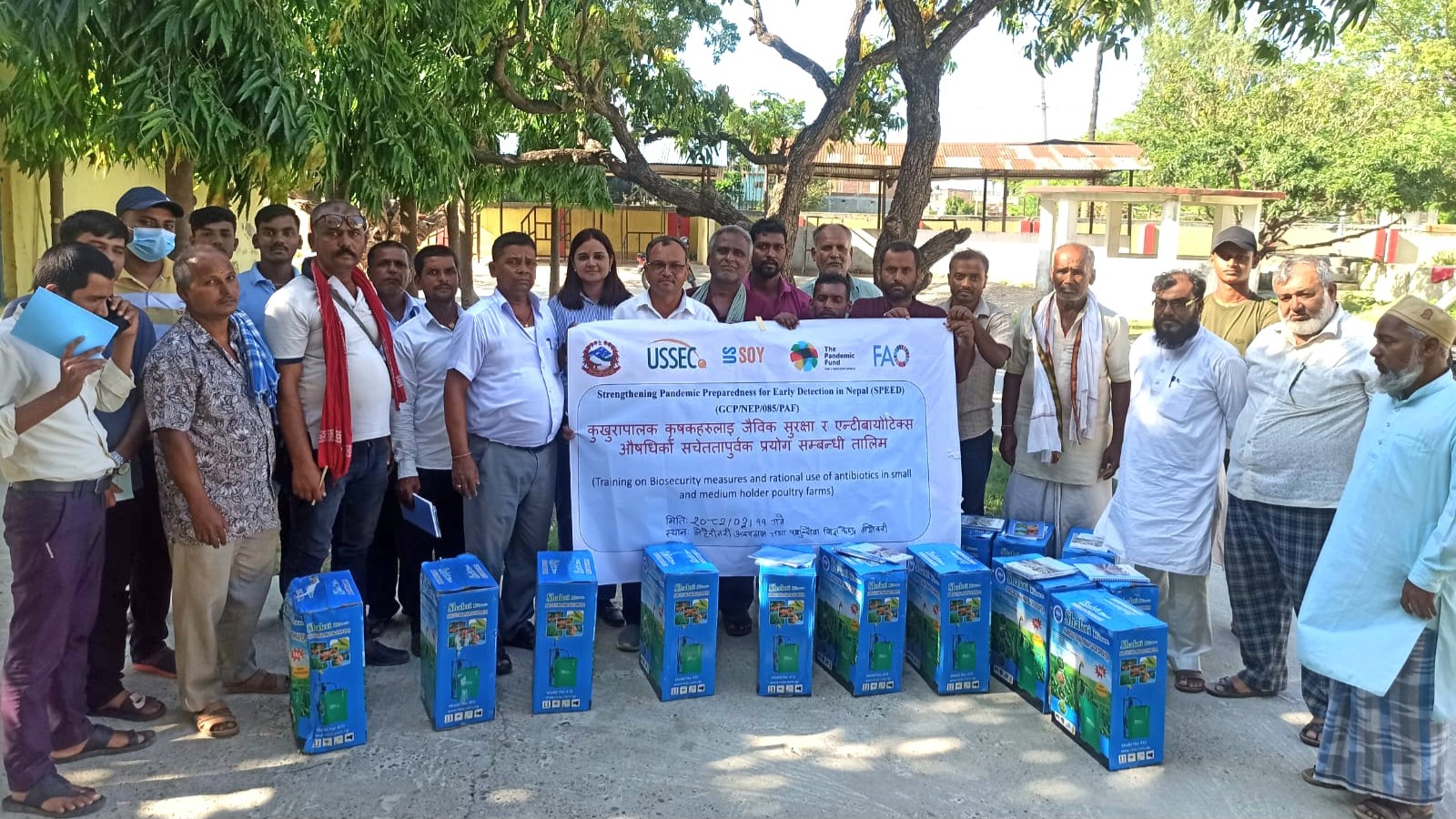
Impact Story | November 24, 2025
Antimicrobial resistance (AMR) is one of today’s most pressing global health threats, already responsible for over a million deaths each year, and projected to cause 10 million deaths annually within the next 25 years if left unchecked. In Nepal, the Pandemic Fund is supporting the government to take decisive steps toward sustainable AMR containment across the human, animal, and environmental health sectors through the Strengthening Pandemic Preparedness for Early Detection (SPEED) project.
Globally, 177 countries have developed National Action Plans (NAPs) to combat AMR, including Nepal. Yet, while 71 percent of these countries are in the process of implementing their NAPs, only 21 percent have made financial provisions to do so. The Pandemic Fund’s catalytic investment of US$19 million—mobilizing US$3.9 million in co-financing and US$2.4 million in co-investment from international and domestic sources—has enabled Nepal to translate its plan into action through a country-driven, multisectoral One Health approach that is already delivering results.
Building Strategic Frameworks
A major milestone came in 2024 with the government’s endorsement of Nepal’s National Action Plan on AMR (NAP-AMR), developed through broad consultation across ministries, experts, and communities. The plan guides national efforts to improve AMR surveillance, strengthen stewardship, and promote responsible antimicrobial use.
Nepal’s progress is already being recognized globally, with an improved rating in the 2025 Tracking AMR Country Self-Assessment Survey (TrACSS)—a testament to the country’s strong commitment and effective implementation.
Strengthening AMR Surveillance Systems
The SPEED project has supported Nepal in significantly expanding its AMR surveillance network for human health and laboratory capacity at the subnational level through collaborative efforts from government and development partners. Bacterial culture and antimicrobial susceptibility testing services are being expanded to 21 fifty-bedded hospitals and five provincial public health laboratories. Further, laboratory personnel have been trained on updated standard operating procedures aligned with the Global Antimicrobial Resistance and Use Surveillance System, enhancing diagnostic accuracy, data management, and quality control.
The challenge of AMR cannot be solved by the health sector alone, our progress in Nepal proves that by building bridges and working together, we can enable resilient and sustainable systems that protect everyone. — Dr. Krishna Prasad Paudel, Policy Planning and Monitoring Division, Ministry of Health and Population<
In the animal health sector, with support from the SPEED project, Nepal’s Department of Livestock Services has rolled out a Laboratory Information Management System, enabling real-time reporting across all veterinary laboratories at the federal and provincial levels. Disease surveillance in animals has been enhanced through the Nepal Animal Health Information System, and the SPEED project has helped expand digital reporting to the grassroots level.
AMR surveillance in the animal health sector has been further strengthened through the ongoing development of AMR/antimicrobial use (AMU) surveillance protocols for sampling swine and cattle populations, with poultry protocols already completed. In addition, the SPEED project has helped conduct a nationwide AMU survey covering over 660 farms in all provinces, generating evidence on antimicrobial use in broiler poultry populations.

Building a Skilled and Sustainable Workforce
Recognizing that systems are only as strong as the people behind them, the SPEED project has placed workforce development at its core. In total, 931 small and medium holder poultry farmers have already been trained in biosecurity measures and the rational use of antimicrobials and received biosecurity kits, while awareness training on AMR has reached 550 veterinarians, technicians and agrovets. AMR data was shared with 81 field animal health practitioners through a laboratory-clinical workshop recently. The project has also launched a Field Epidemiology Training Program for Veterinarians, with 13 graduates already completing the program and a second cohort underway.
By embedding continuous professional development within national systems, the project is helping ensure long-term sustainability and country ownership. These investments in workforce development are strengthening not just AMR containment but the country’s overall preparedness and response capacities.

Enhancing Laboratory Quality and Biosafety
Building on strengthened surveillance networks, Nepal is also advancing efforts to ensure the quality of laboratory services across sectors. To achieve this, the SPEED project has conducted a comprehensive gap analysis of Nepal’s veterinary laboratories, leading to the development of a national roadmap for quality improvement. The Central Veterinary Laboratory and other key laboratories have initiated activities to meet ISO 17025 standards, with support for equipment calibration, proficiency testing, and biosafety upgrades. Peripheral veterinary laboratories have been upgraded to run molecular tests. The National Public Health Laboratory has recently transitioned from ISO 15189:2012 to ISO 15189:2022 accreditation with subnational labs set to follow. All veterinary laboratories now operate a Laboratory Information Management System, improving coordination and data sharing.
Mobilizing Communities for Change
Sustained behavior change is key to reducing misuse of antimicrobials. The SPEED project has engaged more than 1,000 youth volunteers to raise awareness on AMR and sensitized teachers, local leaders, and communities on AMR. Additionally, more than 500 school programs on AMR have been conducted, reaching around 22,000 students. Through targeted educational videos, communication materials, and training sessions, farmers, agrovets, and animal health professionals are learning how to use antimicrobials responsibly, protecting both animal and human health.
By promoting One Health coordination across all seven provinces and enabling collaborative surveillance and outbreak investigations across sectors, Nepal has shown that sustained progress is possible with strong country leadership and catalytic support from the Fund and partners.
The country is committed to sustaining the gains and momentum through continued investment in disease surveillance, workforce development, laboratory systems, and community engagement, and the Pandemic Fund is proud to continue to support the country in its efforts to bolster and transform human and animal health systems for generations to come.
Last Updated: November 25, 2025

